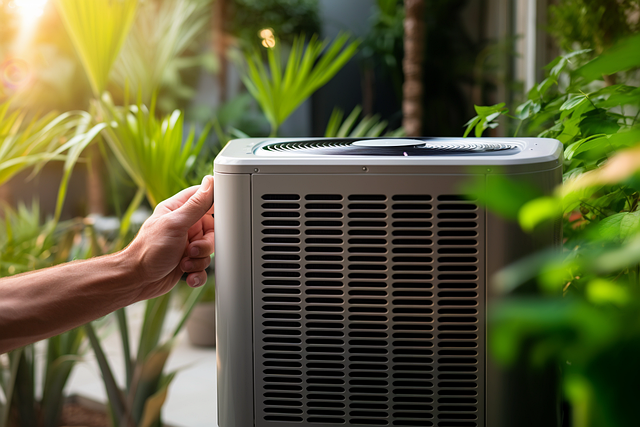Indoor comfort is a crucial aspect of our daily lives, yet it is often overlooked. As we spend an increasing amount of time indoors, the quality of air circulation plays a significant role in determining our comfort levels. From homes to offices, effective air circulation not only ensures a pleasant environment but also has a direct impact on our health and well-being.
With the advancements in technology, there are various ways to control and improve air circulation indoors. However, mastering indoor comfort requires an understanding of the fundamentals and implementing effective strategies. In this article, we will delve into the role of air circulation in achieving optimal indoor comfort and how it can be achieved through proper ventilation, air purifiers, and other techniques.
We will also explore the benefits of good air circulation and how it can enhance our daily lives. By the end of this article, you will have a deeper understanding of the importance of air circulation and the necessary steps to ensure a healthy and comfortable indoor environment.
Importance of proper air circulation.
In addition to providing comfort, proper air circulation plays a crucial role in maintaining a healthy indoor environment. Poor air circulation can lead to a buildup of pollutants, allergens, and other harmful particles, negatively impacting the air quality and potentially causing health issues.
By ensuring effective air circulation, we can minimize the concentration of these pollutants and promote a cleaner, healthier indoor environment. Furthermore, proper air circulation can also help regulate temperature and humidity levels, creating a more comfortable and pleasant living or working space. It is a crucial aspect of maintaining overall indoor comfort and should not be overlooked.
Enhancing indoor air quality.
One of the key components of mastering indoor comfort is effective air filtration. This involves using high-quality air filters that are able to capture and remove a wide range of contaminants from the air, including dust, pollen, pet dander, and mold spores.
Additionally, proper ventilation is crucial for maintaining good indoor air quality. This can be achieved through the use of exhaust fans or opening windows and doors to allow fresh air to circulate. Investing in an air purifier can also greatly improve indoor air quality by capturing and neutralizing harmful particles. By addressing these aspects of air circulation, you can create a healthier and more comfortable indoor environment for yourself and those around you.
Benefits of efficient air circulation.
In addition to creating a healthier indoor environment, efficient air circulation also offers a range of benefits. It helps to evenly distribute temperature throughout a space, preventing hot or cold spots. This can lead to more consistent and comfortable temperatures, reducing the need for excessive heating or cooling. In turn, this can help to lower energy bills and save on costs.
Proper air circulation also helps to reduce the buildup of moisture and humidity, which can lead to mold and mildew growth. By improving air circulation, you can also reduce the spread of airborne illnesses and improve overall air quality. In short, mastering effective air circulation is crucial for creating a comfortable and healthy indoor environment.
Techniques for improving air circulation.
One effective technique for improving air circulation is to strategically place fans throughout the space. Ceiling fans are a great option for larger rooms as they can help distribute air more evenly. Box fans or tower fans can also be used to create a cross-breeze and keep air circulating.
Additionally, opening windows and doors can also help improve air flow, especially if placed in opposite sides of the room. Another technique is to use air purifiers or air filters to remove pollutants and allergens from the air, allowing for cleaner and fresher air to circulate.
It is also important to regularly clean and maintain any air conditioning or heating systems to ensure they are functioning properly and not reducing air flow. Regular maintenance and addressing issues promptly can extend the lifespan of your AC system and keep your indoor environment comfortable.
If you're experiencing specific issues with your AC system or have questions about air circulation in your home or workplace, it's advisable to consult a qualified HVAC technician or an expert in indoor air quality like air conditioner repair Dothan AL for personalized advice and solutions.
By implementing these techniques, you can effectively improve air circulation and achieve a comfortable and healthy indoor environment.
Creating a comfortable living environment.
In addition to optimizing air circulation, there are other factors that contribute to creating a truly comfortable living environment. Temperature control is key, as too hot or too cold temperatures can greatly affect our comfort levels. This can be achieved through proper insulation and a well-maintained heating and cooling system.
Additionally, paying attention to lighting, noise levels, and overall cleanliness can greatly impact the overall comfort of a space. By mastering these elements, you can create an indoor environment that promotes relaxation and productivity, leading to a happier and healthier lifestyle.
In conclusion, proper air circulation is crucial for achieving and maintaining optimal indoor comfort. By understanding the role of air circulation and implementing effective methods, we can create a healthier and more comfortable environment for ourselves and our loved ones.
As professionals in the HVAC industry, it is our duty to educate and assist our clients in achieving the best air quality and circulation for their homes or businesses. With the right knowledge and tools, we can achieve a well-ventilated and comfortable indoor space.

